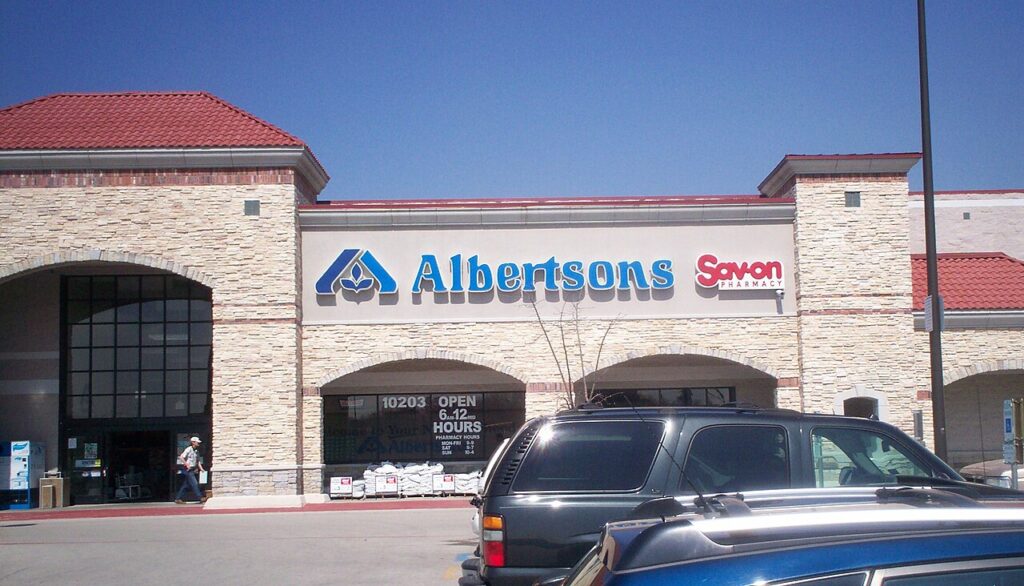The $24.6 billion Albertson’s-Kroger merger between supermarket titans Kroger and Albertsons is under intense scrutiny, with the Federal Trade Commission (FTC) and eight states filing a lawsuit to block the deal over concerns about reduced competition and higher prices. The stakes are high not just for the companies, but for consumers and workers nationwide.
The FTC complaint argues the merger would hurt competition in local grocery markets, especially in rural areas already lacking options. To illustrate the point, they cite Gunnison County, Colorado, where the merger could force residents to drive 65 miles for groceries. Critics worry such “food deserts” will emerge nationwide, limiting access to affordable, healthy food.
The impact extends beyond rural regions. In urban Seattle, residents have already endured local store closures and fear the Albertson’s-Kroger merger could narrow options further.
“A nearby QFC closed four years ago,” said local shopper Debbie Wheeler. “If more stores close because of this merger, it would really inconvenience people.”
Along with access issues, the FTC and labor groups like the United Food and Commercial Workers (UFCW) union warn of falling wages and eroded bargaining power. The complaint includes text messages of Kroger executives complaining Albertsons compelled them to improve worker compensation. UFCW notes the merged company would have reduced nearby competitors, weakening leverage in contract talks.
Related: United Auto Workers Sue Musk, Trump for Comments During X Interview
Long-time Albertsons employee Leonard De Monte experienced this first-hand when his Woodland Hills store was sold in a previous merger. After decades as a union grocery clerk, the sale demoted De Monte to minimum wage, and he had to work back to his $27 hourly pay. “I could lose my great health benefits if my store is sold again,” he worries. “I’d have to pay for insurance myself.”
The Economic Policy Institute estimates the merger could reduce annual earnings among grocery workers by $334 million. Workers will pay the price for perceived “efficiencies.”
Kroger and Albertsons counter their merger is necessary to compete with chains like Walmart and Costco on price and quality. They claim the merger will lower Albertsons’ prices, which are currently 10-12% above Kroger’s.
Detractors cry foul, however, arguing the merger patently reduces competition. “It’s corporate greed at its worst,” said former Labor Secretary Robert Reich. Reich predicts companies could actually raise prices without competition.
The Roosevelt Institute agrees, noting the FTC is “taking harms of consolidation on workers seriously.” The case represents an important test for FTC Chair Lina Khan, who has advocated stronger antitrust enforcement against megamergers.
Meanwhile, the issue of supermarket price gouging has caught the attention of lawmakers like Vice President Kamala Harris while on the campaign trail, bringing added scrutiny to grocers.
“As president, I will take on the high costs that matter most to most Americans, like the cost of food,” Harris said at a campaign event at Raleigh, North Carolina. “A loaf of bread costs 50% more today than it did before the pandemic. Ground beef is up almost 50%. Many of the big food companies are seeing the highest profits in two decades.”
With pre-trial arguments underway in Portland, Oregon, Judge Adrienne Nelson will determine if the purported benefits outweigh risks of diminished choice, higher prices, and consolidated power. The outcome could impact future merger policy across industries.
Another suit led by Washington State Attorney General Bob Ferguson will also shine a light on the merger beginning in September. Across these cases, regulators will balance purported efficiencies against the landscape of competition, worker welfare, and consumer prices.
For residents like Debbie Wheeler, however, the issues remain personal. “We deserve affordable, accessible groceries,” she said. “And workers like Leonard deserve good wages and benefits. I hope the FTC considers people like us – not just the big companies.”
The public interest hangs in the balance as legal proceedings advance. But for now, the merger faces significant uncertainty and opposition.
Related: WalMart to Pay $45 Million Settlement For Overcharging Customers on Groceries


